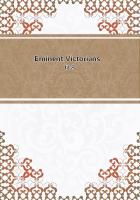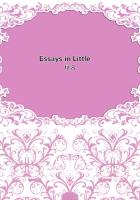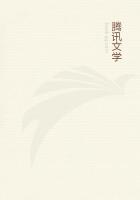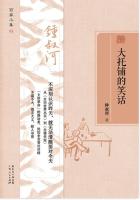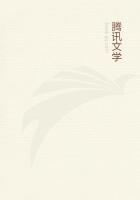When she wrote her letters to Mr. Crisp, her early journals, and her first novel, her style was not indeed brilliant or energetic; but it was easy, clear, and free from all offensive faults. When she wrote Cecilia she aimed higher. She had then lived much in a circle of which Johnson was the centre; and she was herself one of his most submissive worshippers. It seems never to have crossed her mind that the style even of his best writings was by no means faultless, and that even had it been faultless, it might not be wise in her to imitate it. Phraseology which is proper in a disquisition on the Unities, or in a preface to a Dictionary, may be quite out of place in a tale of fashionable life. Old gentlemen do not criticise the reigning modes, nor do young gentlemen make love, with the balanced epithets and sonorous cadences which, on occasions of great dignity, a skilful writer may use with happy effect.
In an evil hour the author of Evelina took the Rambler for her model. This would not have been wise even if she could have imitated her pattern as well as Hawkesworth did. But such imitation was beyond her power. She had her own style. It was a tolerably good one; and might, without any violent change, have been improved into a very good one. She determined to throw it away, and to adopt a style in which she could attain excellence only by achieving an almost miraculous victory over nature and over habit. She could cease to be Fanny Burney; it was not so easy to become Samuel Johnson.
In Cecilia the change of manner began to appear. But in Cecilia the imitation of Johnson, though not always in the best taste, is sometimes eminently happy; and the passages which are so verbose as to be positively offensive, are few. There were people who whispered that Johnson had assisted his young friend, and that the novel owed all its finest passages to his hand. This was merely the fabrication of envy. Miss Burney's real excellences were as much beyond the reach of Johnson, as his real excellences were beyond her reach. He could no more have written the Masquerade scene, or the Vauxhall scene, than she could have written the Life of Cowley or the Review of Soame Jenyns. But we have not the smallest doubt that he revised Cecilia, and that he retouched the style of many passages. We know that he was in the habit of giving assistance of this kind most freely. Goldsmith, Hawkesworth, Boswell, Lord Hailes, Mrs. Williams, were among those who obtained his help. Nay, he even corrected the poetry of Mr. Crabbe, whom, we believe, he had never seen. When Miss Burney thought of writing a comedy, he promised to give her his best counsel, though he owned that he was not particularly well qualified to advise on matters relating to the stage. We therefore think it in the highest degree improbable that his little Fanny, when living in habits of the most affectionate intercourse with him, would have brought out an important work without consulting him; and, when we look into Cecilia, we see such traces of his hand in the grave and elevated passages as it is impossible to mistake. Before we conclude this article, we will give two or three examples.
When next Madame D'Arblay appeared before the world as a writer, she was in a very different situation. She would not content herself with the simple English in which Evelina had been written. She had no longer the friend who, we are confident, had polished and strengthened the style of Cecilia. She had to write in Johnson's manner without Johnson's aid. The consequence was, that in Camilla every passage which she meant to be fine is detestable; and that the book has been saved from condemnation only by the admirable spirit and force of those scenes in which she was content to be familiar.
But there was to be a still deeper descent. After the publication of Camilla, Madame D'Arblay resided ten years at Paris. During those years there was scarcely any intercourse between France and England. It was with difficulty that a short letter could occasionally be transmitted. All Madame D'Arblay's companions were French. She must have written, spoken, thought, in French.
Ovid expressed his fear that a shorter exile might have affected the purity of his Latin. During a shorter exile, Gibbon unlearned his native English. Madame D'Arblay had carried a bad style to France. She brought back a style which we are really at a loss to describe. It is a sort of broken Johnsonese, a barbarous patois, bearing the same relation to the language of Rasselas, which the gibberish of the negroes of Jamaica bears to the English of the House of Lords. Sometimes it reminds us of the finest, that is to say, the vilest parts, of Mr. Galt's novels; sometimes of the perorations of Exeter Hall; sometimes of the leading articles of the Morning Post. But it most resembles the puffs of Mr. Rowland and Dr. Goss. It matters not what ideas are clothed in such a style. The genius of Shakspeare and Bacon united, would not save a work so written from general derision.
It is only by means of specimens that we can enable our readers to judge how widely Madame D'Arblay's three styles differed from each other.
The following passage was written before she became intimate with Johnson. It is from Evelina:
"His son seems weaker in his understanding, and more gay in his temper; but his gaiety is that of a foolish overgrown schoolboy, whose mirth consists in noise and disturbance. He disdains his father for his close attention to business and love of money, though he seems himself to have no talents, spirit, or generosity to make him superior to either. His chief delight appears to be in tormenting and ridiculing his sisters, who in return most cordially despise him. Miss Branghton, the eldest daughter, is by no means ugly; but looks proud, ill-tempered, and conceited. She hates the city, though without knowing why; for it is easy to discover she has lived nowhere else. Miss Polly Branghton is rather pretty, very foolish, very ignorant, very giddy, and, I believe, very good-natured."


